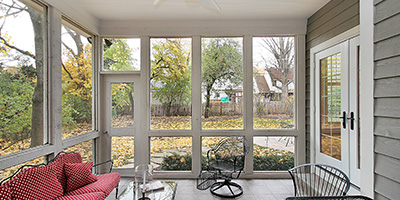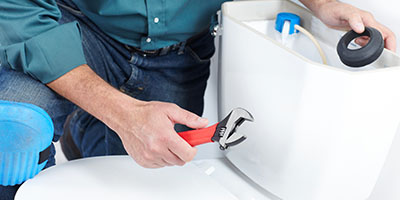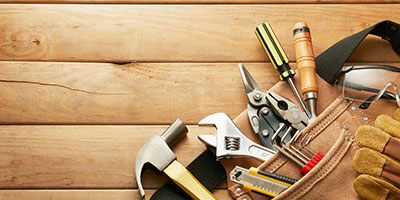11 Essential Tools Every Homeowner Should Have in Their Toolbox

Tools for Beginner DIYers
So, you’re ready to get into the DIY game. Maybe there are a few projects around the house you want to complete. Or maybe you finally just want to hang those photos you’ve been putting off forever. Whatever your motivation, every DIY journey begins with assembling the perfect toolkit to help you tackle any project, big or small.
We’ve put together a list of basic tools to have that both the average homeowner and a beginner-level DIYer will need to succeed.
Essential Tools for Homeowners and Beginner DIYers
1. Tape Measure
You’ll be surprised how often you’ll reach for your tape measure for one reason or another. A 25-foot long tape will cover a wide range of DIY and home improvement projects. If you’re looking for a sturdy tape measure, choose one with a nylon or acrylic-coated blade that won’t crack or split.
Average Price: $5-$20
Projects You’ll Need It For: Any projects that require precise measurements, from remodeling projects around the home to measuring for new appliances or furniture.
2. Utility Knife
A utility knife is a great basic tool to have. Cheaply-made knives are prone to problems such as blades that snap or won’t lock into place, so when shopping for one, go for a mid-range knife with a rubber grip to prevent slipping.
Average Price: $15-$30
Projects You’ll Need It For: You will find more uses for this tool than you might think; from opening packages to DIY projects like removing carpet, taking out a bathroom vanity or even breaking down an old mattress.
3. Claw Hammer
While there are several types of hammers, the claw hammer is most commonly used. Its main use is to pound or extract nails from wood. Choose one with a rubber or vinyl handle for shock absorption and an easier grip.
Average Price: $10-$40
Projects You’ll Need It For: Hammers are handy for everything from hanging pictures on the wall to more in-depth DIY projects like removing tile flooring or tearing down your wooden deck.
4. Screwdriver Set
In the current do-it-yourself age, a screwdriver set is vital to have. And most beginner DIYers learn the hard way that just one single screwdriver won’t cut it. Find a set with both flat-head and Phillips-head screwdrivers in various sizes to cover a range of projects big and small.
Average Price: $20-$40
Projects You’ll Need It For: You’ll use your screwdriver set for everything from putting new batteries into your child’s toy to home gutter repairs.
5. Hardware
An assortment of hardware – or nails and screws – in various types and sizes will come in handy often. Keep them in a box with compartments for easy separating and label them so you can quickly find what you’re looking for.
Average Price: $9-$11 (can be purchased in 6-ounce or 1-pound packages)
Projects You’ll Need It For:
- Finishing nails are used for putting the final touches on molding, trim and hardwood flooring projects.
- Vinyl sinkers are used in construction and carpentry projects, and help make it easier to hammer into wood.
- Galvanized nails are used for mainly outdoor projects, specifically roofing, because they are coated in zinc to prevent rust and corrosion.
- Drywall screws are used to secure drywall to metal studs and can be used to patch ceilings after knocking down a wall in your home.
- Outdoor screws are typically made of stainless steel and are completely rust resistant, which make them great for building a new deck.
6. Tape
There’s a wide range of tapes that may be better suited for your project than all-purpose masking tape or scotch tape. Each type of tape has different qualities of fabric, polyethylene, and adhesive made for a variety of uses.
Average Price: $7-$10
Projects You’ll Use It For:
- Duct tape provides strong adhesion and can be used for the largest variety of projects from art to working on finishing your basement.
- Electrical tape, also known as insulating tape, is pressure-sensitive and can be used for insulating wires or other materials that conduct electricity.
- Painter’s tape is designed to protect your door frames, floorboards and trim during painting projects. It comes off easily without leaving residue or damaging existing paint.
- Plumber’s tape – also known as PFTE, thread seal or Teflon tape – is commonly used in plumbing for sealing pipe threads.
7. Adjustable Pliers
Adjustable pliers will make a great addition to your tool collection. Its angled jaws make this tool useful for turning nuts and bolts. Pliers can also function as clamps and wire cutters and may also be called plier wrenches, tongue and groove pliers or locking pliers.
Average Price: $15-$30
Projects You’ll Use It For: Depending on the type you buy, a pair of pliers can be used for gripping something large like a rod or pipe or smaller things like nails in wood trim, if you are removing or replacing your baseboards.
8. Adjustable Crescent Wrench
Adjustable wrenches have a moveable jaw, allowing them to be used with different sized nuts and bolts. At the beginner level, a full set of various sizes isn’t necessary; just one large adjustable wrench will do. Make sure to store your wrench in a cool, dry place to avoid rust.
Average Price: $20-$35
Projects You’ll Use It For: You will use these when you are loosening or tightening a nut or a bolt, possibly in a plumbing project or when assembling new furniture.
9. Allen Wrenches
An Allen wrench is a simple tool that is used to drive bolts and screws with hexagonal sockets in their heads. Choose a set with various sizes to accommodate a range of projects. Allen wrenches are also called hex keys or Allen keys.
Average Price: $5-$15
Projects You’ll Use It For: There are multiple uses for these wrenches including putting together or repairing furniture, fixing bicycles or even picking a door lock that your adventurous child may have gotten stuck behind.
10. Level
Levels are used to ensure that lines or surfaces are entirely straight. Levels usually consist of small tubes containing liquid and an air bubble. If the air bubble is in the center of the tube, the line or surface is level. Most can double as a ruler or straightedge as well.
Price Range: $10-$40
Projects You’ll Use It For: Levels can be used to find level ground, ensure that new flooring is even or even for something as simple as hanging art or photos on the wall.
11. Stepladder
This isn’t exactly a tool, but a 6-to-10-foot stepladder will allow you to reach most areas of your home. When choosing one, make sure to check the stability and always ensure you are using it on a firm, level, non-slippery surface.
Average Price: $70-$100
Projects You’ll Use It For: A stepladder will come in handy often in your home, especially for completing simple chores like dusting, changing lightbulbs or reaching high cabinets. You will also need it for DIY projects like installing new light fixtures or painting your ceilings.
Ready to put your tools to good use? Check out our Home Renovation Guide!
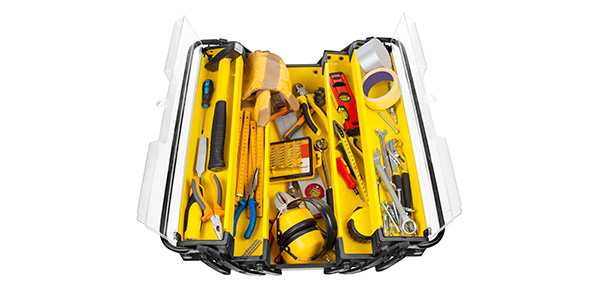
Advanced Home Improvement Tools for the DIY Pro
Homeowners should keep all the above tools within easy reach. But those who want to start taking on more complex projects will need some additional items on their DIY tool list.
1. Stud Finder
This tool makes it easy to find wall studs behind drywall so you can securely hang shelves and other heavy items. There are two types of stud finders: electric and magnetic. Magnetic stud finders work by locating the nails in studs, while electric stud finders can sense the actual location of the studs.
Average Price: $20-$35
Projects You’ll Use It For: Using a stud finder is vital when you want to hang something heavy and need to drill into a stud to provide extra support. It can be used for putting up a new flat-screen TV or hanging a gallery wall in your living room.
2. Power Drill
Corded power drills will be more affordable than cordless. Whichever you choose, get the most for your money by buying one that can sand and grind in addition to drilling and driving screws. Test your drill in person to get a feel for the weight and grip. You’ll need between a 12-volt or 18-volt if you plan to do any projects involving drilling metal, plastic or tile.
Average Price: $30-$80 (corded); $60-$100 (cordless)
Projects You’ll Use It For: The number of uses for your drill is endless. You will need it to hang floating shelves, build yourself a kitchen island or put together a new Ikea nightstand.
3. Hacksaw
The hacksaw was originally made for cutting metal, but it can also cut various other materials such as plastic and wood. Depending on how much you end up using your saw, the blades can last for several months or up to one year before needing to be replaced.
Average Price: $15-$25
Projects You’ll Use It For: Trying your hand at a DIY reclaimed wood table? A hacksaw will come in handy when you’re tackling any Pinterest that involve cutting wood, metal or plastic. You’ll also need one for bigger projects, such as remodeling your bathroom from start to finish.
4. Putty Knife
A putty knife is a specialized tool used for working putty around the edges of a window when glazing it. In addition to spreading putty, this can be used for prying, scraping away residue, removing wallpaper and more.
Average Price: $5-$8
Projects You’ll Use It For: You’ll be covered for an assortment of projects with the putty knife – from scraping old paint off your porch railings to removing your kitchen cabinets.
5. Heavy-Duty Extension Cord
Extension cords are imperative to have around the house, because chances are, you won’t always have an electrical outlet positioned exactly where you need it. They come in different types, lengths and sizes. For use with larger appliances, thick, round, low-gauge extension cords are best. For smaller appliances and electronics, you can use thin or flat cords.
Average Price: $18-$40
Projects You’ll Use It For: For most homeowners, a 14-gauge or 12-gauge extension cord is enough to handle any backyard DIY projects or outdoor holiday lighting, but always be sure to choose the correct extension cord for the tools or machines you’re powering.
The Best Way to Store Your Tools
Now that you’ve built up your household tools list, it’s important to properly store and organize them so when the time comes to use them, they are easily accessible.
You can start by delegating a space in your garage, basement or shed as your storage area. Clean up any cobwebs, dust or dirt and make sure the space is waterproof. Once it’s clean, you can choose one of the following ways to organize your work area:
- Tool Cabinet or Tool Chest
- Tool Box or Tool Bag
- Work Bench
- Garage or Basement Cabinets
- Wall Mounted Hooks and Hangers
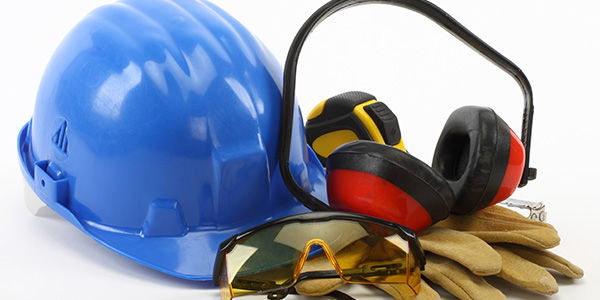
Personal Safety Gear to Have On Hand
Now that you’ve got your basic tools together, it’s important to make sure you are safely protecting yourself when using them. The personal safety gear you should always be equipped with includes:
• Safety Glasses | • Knee Pads |

